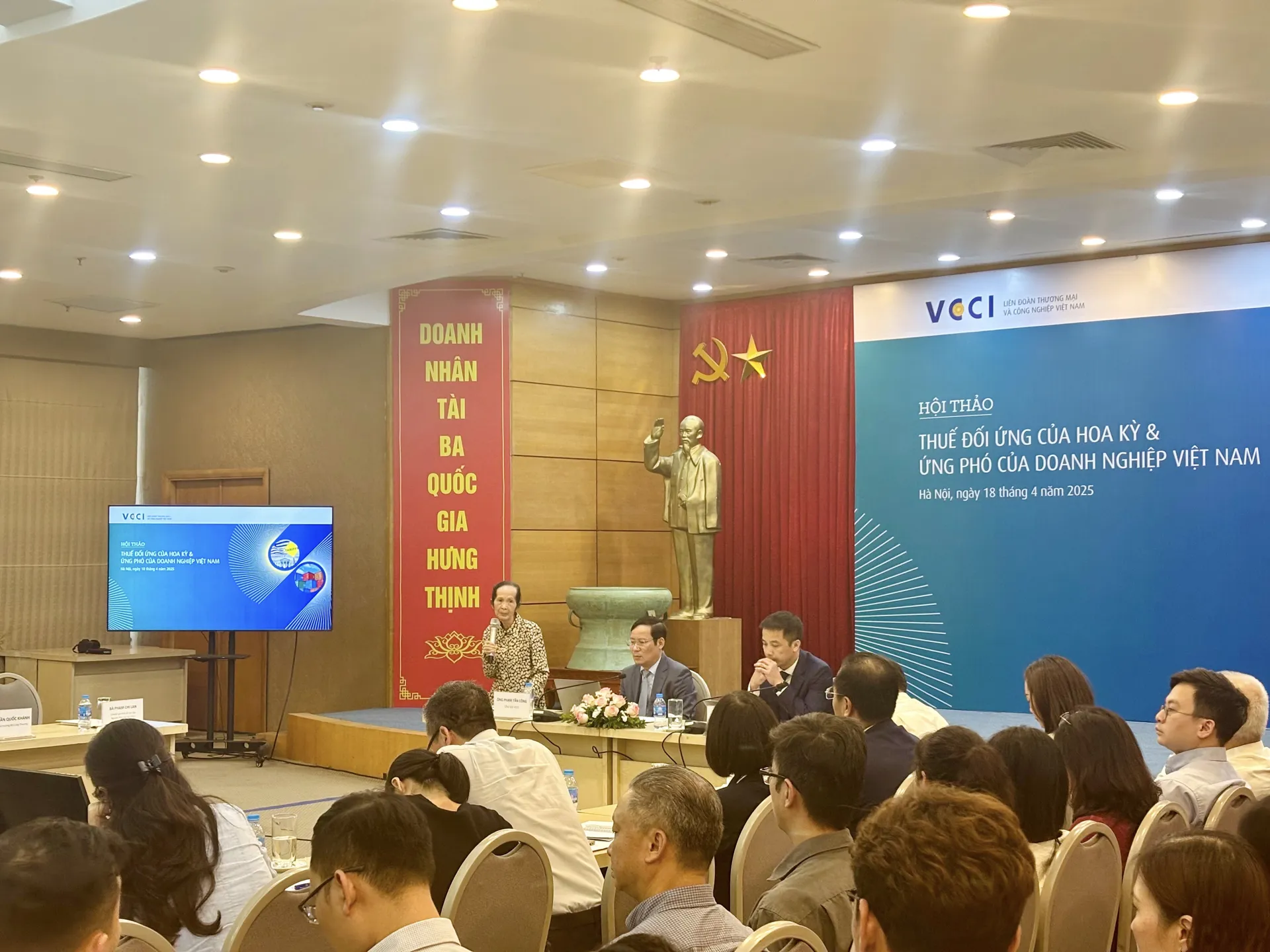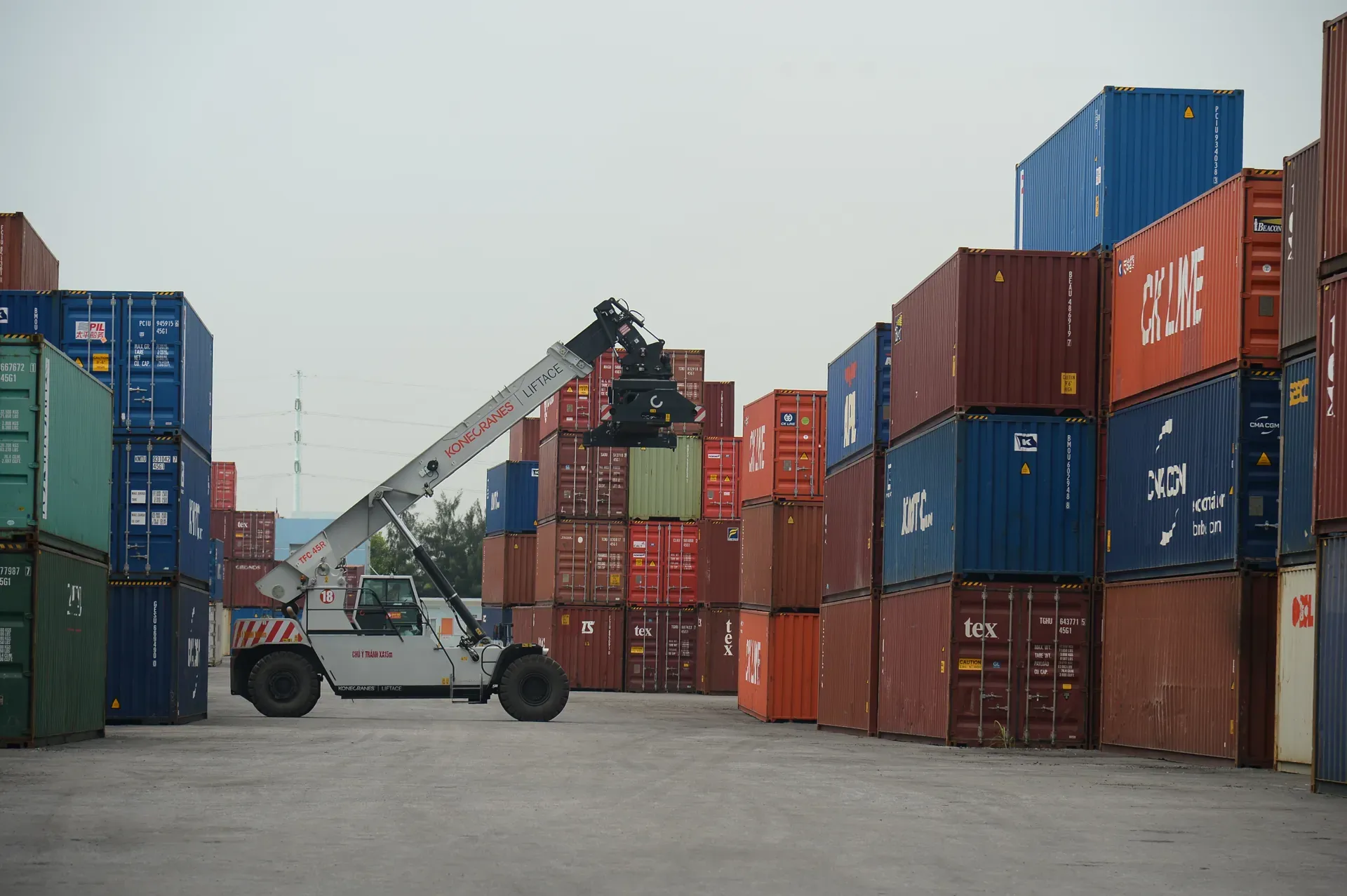Vietnam’s enterprises must act fast to weather US tariff shock: Experts
Many of the key Vietnamese exports, such as wood products, electronics, and textiles, that are not on the US exclusion list could face steep tariffs.
THE HANOI TIMES — Vietnamese businesses must act quickly during the 90-day US tariff delay by strengthening partnerships, adapting export items, and exploring new markets.

Pham Tan Cong, VCCI Chairman (center), Dau Anh Tuan, VCCI Deputy Secretary General, and economist Pham Chi Lan (left) discuss the measures at the seminar on April 18. Photos: Phi Nhat/The Hanoi Times
Dau Anh Tuan, Deputy Secretary General of the Vietnam Chamber of Commerce and Industry (VCCI), stressed urgent response measures at the "US Reciprocal Tariffs and Vietnam's Enterprise Response" seminar held in Hanoi on April 18.
According to him, although President Donald Trump has announced a 90-day suspension of additional tariffs beyond the baseline 10%, the measures have already put significant pressure on governments, multinational corporations, and particularly Vietnamese exporters.
Many of the key Vietnamese exports, such as wood products, electronics, and textiles, that are not on the US exclusion list could face steep tariffs. Regional competitors, meanwhile, will benefit from more favorable rates, exacerbating Vietnam's competitive disadvantage, Tuan said.
Pham Tan Cong, Chairman of VCCI, said the ripple effect is expected to be felt beyond direct exporters and reach the ecosystem of suppliers, processors, logistics providers, and financial institutions. Rising production costs and supply chain disruptions are seen as major challenges across all industry sectors.
He added that the US is currently Vietnam's largest export market, accounting for over 29% of total export turnover, buying key products such as wood, electronics, and textiles. "If the reciprocal tariffs are levied, Vietnam’s economic growth will be strongly affected, supply chains disrupted, and employment reduced," Cong said.
Strengthen internal capabilities for growth

Economist Can Van Luc predicted that under a baseline scenario, reciprocal US tariffs of 20% to 25% on Vietnamese exports could result in additional costs of about US$55 billion annually.
If Vietnam cuts tariffs on US goods to zero, tax revenue would fall by about $1.2 billion, he said.
Therefore, it needs to make the negotiations a success by promptly addressing the 24 outstanding trade barriers in 14 sectors identified by the US. In another move, the Vietnamese government is actively working to resolve these issues, which would benefit both US and Vietnamese businesses.
For businesses, Luc advised more transparency in product origin and the publication of domestic value-added ratios while diversifying export markets. At the same time, they should maximize opportunities given by trade agreements, such as the Comprehensive and Progressive Agreement for Trans-Pacific Partnership (CPTPP) and the Regional Comprehensive Economic Partnership (RCEP), as "only 30% of Vietnamese businesses are taking full advantage of the 17 signed free trade agreements (FTAs)."
Highlighting the importance of supporting industries, he called for a greater focus on the domestic market and local businesses, and urged policymakers to soon submit to the Politburo a proposal on developing Vietnam's private sector.
Meanwhile, the VCCI chairman urged industry associations to take a leading role in guiding their members through this turbulent period. "For businesses to thrive, we need a skilled workforce, a transparent regulatory framework, and a conducive business environment," he said, pointing to logistics as a critical bottleneck that needs to be addressed urgently.
Cong suggested a review of products that merely carry the "Made in Vietnam" label without adding significant value to protect those with real local production and value-added potential.
"This is a pivotal moment for us to reassess our development strategy, boost internal strengths, proactively adapt, and reposition Vietnam's role in the global supply chain," he said.
At the event, economist Pham Chi Lan said that enterprises must position themselves as political and economic actors, proactively engaging in diplomacy and reform to protect their long-term interests.
She highlighted the unprecedented direct engagement between the prime minister and the private sector, stressing that it marks "a crucial shift towards recognizing the importance of the private sector in Vietnam's economy." Lan described it as "a very serious and commendable message."
In the face of global uncertainties, such as geopolitical conflicts, climate crises, and technological competition, she emphasized the need to strengthen internal capabilities.
“Focusing on the quality of growth rather than merely speed is the key to long-term sustainability. Now it's time to strengthen Vietnam's foundation solidly, not just fast," she concluded.












